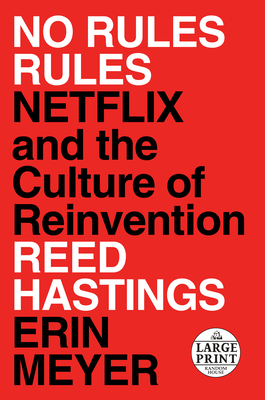
Netflix succeeded where many large corporations—Kodak, Nokia, AOL—failed to adapt to changes in their industry. We should be curious about their story, which is related by Reed Hastings, cofounder, and Erin Meyer, author of The Culture Map.
The Netflix culture is often cited as a key ingredient of their success. When you dare to do things differently—valuing people over process, emphasizing innovation over efficiency, and having very few controls—you get different results.
The book is without surprise different from other similar books. I enjoyed reading it. A mix of conversations, Q&A, real-world examples of situations based on the interviews of more than 200 Netflix employees. What I really appreciate the most about this book is it’s not just about the current Netflix culture but how it evolved since the beginning and even before that with the previous company of Reed Hastings. We understand the motivations, the challenges, and the failures that Reed Hastings (and Netflix) overcame to end where they are. It’s an authentic book, with a profound motivation to share valuable experiences and lessons, and not simply a way to popularize the Netflix culture.
Chapters are organized around the three pillars: build up talent density, increase candor, and reduce controls, which evolved in three cycles representing the three parts of this book. The book organization reflects perfectly how practices, principles, and values reinforce mutually to create a cohesive culture that works at Netflix. A culture is not just a bunch of empty words, or nice-sounded values. A culture must reflect the way people behave in reality. This book is the perfect example.
No Rules Rules is a great book for managers that want to understand why great management often has nothing to do with management at all. The main problem I have with this book is the emphasis on talent. As Reed Hastings declares, Netflix tries to hire the best, like every company. Talent is misleading. The Netflix culture and environment contribute for sure in making talent a reality, but talent alone is an illusion. The book How Google Works is far more relevant on this point and is a good suggestion for your next reading. When different companies dare to think differently, it happens that the results are not so different after all.
